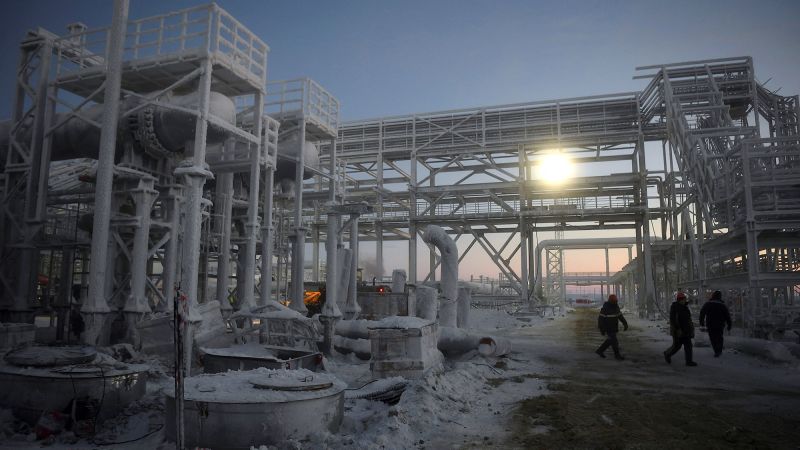The European Union is moving closer to banning all imports of Russian oil and natural gas more than three years after Moscow launched its unprovoked, full-scale invasion of Ukraine.
The European Commission, the bloc’s executive arm, put forward a legislative proposal Tuesday to gradually ban purchases of Russian natural gas – whether supplied via pipeline or as liquefied natural gas (LNG) on tankers.
Under the plan, no new import contracts will be allowed from next year, while imports under existing short-term contracts for most EU member states will have to stop in a year’s time and purchases under long-term contracts will be outlawed by the end of 2027.
“Russia has repeatedly attempted to blackmail us by weaponizing its energy supplies,” European Commission President Ursula von der Leyen said in a statement. “We have taken clear steps to turn off the tap and end the era of Russian fossil fuels in Europe for good.”
The proposal also includes a ban on Russian-owned or controlled companies signing up to long-term contracts for the EU’s LNG terminal services, ensuring that “terminal capacity can be redirected to alternative suppliers.”
As for oil imports, the commission proposed requiring the member states still importing Moscow’s oil to prepare plans to phase out these supplies, aiming at a complete stop by the end of 2027.
For example, Hungary and Slovakia were still importing Russian crude oil via pipeline last year, according to an analysis by the Centre for Research on Energy and Clean Air, a research organization.
Tuesday’s proposal puts meat on the bones of the EU’s “REPowerEU” plan, introduced back in May 2022 to break the bloc’s dependence on Russian energy.
Hungary and Slovakia, two EU countries with more Russia-friendly governments, have previously threatened to block new rounds of sanctions against Russia. While they have ultimately voted in favor, the European Commission has taken steps to ensure they cannot stand in the way of its latest plan by using trade and energy legislation as the basis for Tuesday’s proposal.
That way, the new restrictions will become law if they are approved by a “qualified majority,” meaning that more than half of EU member states representing at least 65% of the bloc’s population will need to vote in favor. If the plan had been proposed under the EU sanctions rules, it would have required a unanimous vote from all member states.
The EU drastically slashed its imports of Russian energy after Moscow invaded Ukraine in early 2022. Russia’s share of the bloc’s total imports of natural gas fell to 19% last year, from 45% in 2021, according to official EU data. Meanwhile, Moscow accounted for just 3% of the EU’s total oil imports in 2024, down from 27% at the start of 2022.
Last week, the EU unveiled anew package of sanctionsagainst Russia – its 18th since Moscow’s invasion – designed to further reduce the Kremlin’s ability to make money from its oil and gas production.
Von der Leyen said the sanctions were necessary “because strength is the only language that Russia will understand.”
The proposed sanctions include lowering the price cap on Russianoil exports from $60 to $45per barrel and introducing a full transaction ban on Russian banks and other financial institutions in third countries that help Russia circumvent existing Western sanctions.
The new package will need to be approved by all of the EU’s 27 member states. That could be complicated, given concerns raised previously by some EU countries, such as Hungary and Slovakia, about further sanctions on Russia.
